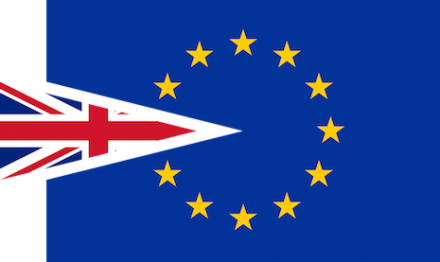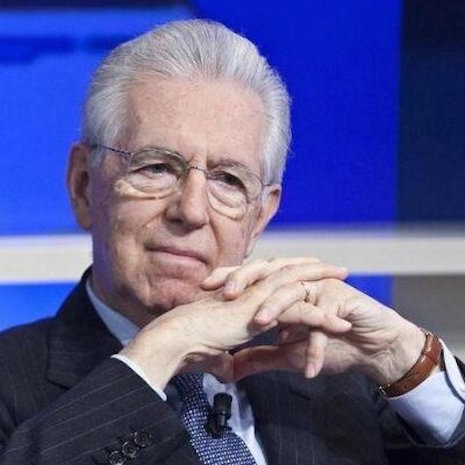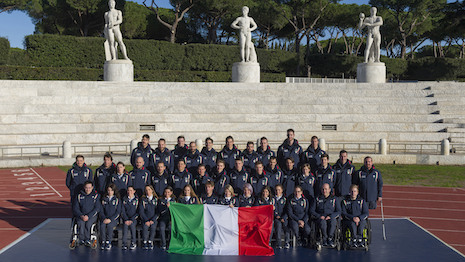VENICE, Italy – The European Union is in a difficult situation but even as member states leave or contemplate leaving, the crisis presents an opportunity to strengthen the architecture of the EU.
According to economist and former Italian Prime Minister Mario Monti, the various crises facing the EU also represent a golden opportunity. At the Financial Times Business of Luxury Summit on May 21, Mr. Monti spoke with Martin Wolf, chief economics commenter at Financial Times, about the various challenges that lie in the future for Italy and all of Europe.
"Europe needs crises to become more adult, so in that regard we are in great shape," Mr. Monti said. "With the election of [President] Macron, all the ingredients are there for a new cuisine of Europe."
Golden opportunity
At the Financial Times Business of Luxury summit, an overarching theme is the transformation of Europe’s many once-solid alliances into something more fragile.
There is a growing divide between the Northern and Southern countries of the EU in terms of economics as well as between Eastern and Western countries in terms of democratic norms.
Simultaneously, Brexit and the rise of anti-EU sentiment among many member states has made the situation even more disrupted. This unbalancing has put many on edge.
Mr. Monti sees some recent changes, such as the election of Emmanuel Macron in France, as hope spots.

Brexit has unsettled the EU. Image credit: European Union
"I’m less optimistic now than I was six months ago," Mr. Monti said. "Because there is an asynchrony there.
"Macron is a uniquely strong leader riding in a pause where the ideals that he champions with great courage are coming out of fashion," he said. "I’m a bit concerned. We finally have France back but we don’t have Germany anymore in terms of willingness to improve European construction."
Alongside these cultural and political challenges, Europe’s economies are suffering as well.
Financial Times’ Mr. Wolf pointed out that in many areas, European countries are now lagging behind prosperous Asian countries with high growth rates, with China being a particularly strong example.
"Asia is becoming more important," Financial Times' Mr. Wolf said. "Asia is growing three times as fast than other countries."
EU stability
While much of Mr. Monti and Mr. Wolf’s conversation was focused on the ways that Europe and the EU are facing challenges, those same challenges can also help the EU reshape itself into something stronger.
For example, the impact of the United Kingdom’s Brexit vote is still being felt today, but the election of Emmanuel Macron in France and other recent developments in the region suggest the European project is not dead.

Mario Monti. Image credit: Twitter
After nationalist elements of U.K.’s political culture successfully pushed the country to vote to leave the European Union, many believed that Europe was on the verge of breaking apart for good. Speaking at a New York Times Luxury event last year, another of Italy’s former prime ministers, Enrico Letta, claimed that it is too early to count Europe out for good just yet (see story).
Mr. Monti even suggests that the anti-EU movements that have arisen in the U.K. and Italy can also be agents of positive change for the EU as a whole.
"What I suggest to populists when I have a chance is to say 'Your two targets are the Italian establishment and the EU,'" Mr. Monti said. "I tell them to focus their fire on the Italian establishment which needs to be more competitive, more open.
"If you do these things to modernize the country and make it more competitive, the EU will be on your side."
{"ct":"KVa4MyUAnb5ZtdVPifLCwCF2quvnAMTnV8gUiBJ\/4vUvg8or4rRSHcoypj3qvo6HS+UwqvahM\/yTY0wDONJnBZkNLAZyC\/JwSVKjHH26ws87OdKAwQSSrS60ZVpAsJN2EI9PEdrCUUXgAcjfLnpfjF4ovtlxCqqZlT2YU8oyWBHld19Jx4qKUGKZSO1Uq43hdSU9GY0gV3JNlfx4SbDPQr9yV1gQ\/p98zpWQWbcvw4T0SFPgptKEqoVq90EHxS8q3YDwpiqt2zN1zJCHeqnJBfAXl+iXHYrU\/bmLdSObKe8lR23xZeRcIYwyXz8KMw5wzlvTb3RMR+cC4vWBZ2UmZ9snXkkz09A38m3DLz4bDl3vXbrUKPbiTzstdioMpOa+teMAyCblI7kc+rFlXIompwY\/13Tg\/HA21KZmNG85zvDtbCfnSXEo3FQUpNsf7n0T5JdWl7jVVzGEKQuSQnLVYDkgW8r3PlJ4fCHmFkhM\/1Jq16g19Xsry5gdEaKHpdYAK26JjmKqut\/xOuZk8Qd7LVAUhdfaprKtFY04isb2zf+RjAENzoLhxHODXzkd\/J+DHKzzcxXrrmoVsjauSundxP0SRKGG0IaFb8oKl5shRuVwxEtJbfS72HD0JbPwSlCLSeb\/nO1\/MkbFDbGL3r4WmrFDElyx+fe8eQaczREzi0lrCrFjAKTHg1HxfDFLjEc\/4biZaLS86dJbvquiGFw0Ojd9SOUusZontNfWh+b3r9olF0uCtZI7xVieIqaozNZJe9VMARjOipGU0t\/mzjrpfrPJkgBNuG8Ecd4FNTRAWMiuUCUJVyhvaMnyIZNRPLqSOrC8YG1ELTdJIiZV9gfu9rI19x2ZdNQ8HZ0CgVM5IaHXrAALrINlq9phXi\/dgxtfmAG5+kWZtUw3s0AfvB5Sld\/aKjCjiafDWm8HUgsGqp3kn3UI7A3C8WFKSQftOdZPeh\/iyGa9eLYUEH2QQgED9QTE39YTDJyfvwo6wukIt5INz64+VGMkx6xiKjYn1diuoFDuhY9B\/n5dSaj8bc+1hYYOYM2D04fUZ0TZMXxo3QYa\/QZChSF4sktNC3\/MYi8vwim9mk0ecR9dsLU6bIHsDd5K2vkbMw9B\/ENcRungzSQVqSvCQ4JCmyVuXGbBl1BBeloHYZ0T+ipvg1xtd6AcOQBPYi4z8pllCcY+Yp1oHutEKVJDKYEUAewfUeAv4E1aROhLfPwJhpJ\/Ww5cwYEUI1SIwjS0+AOFI3upFgMHtRgTwGbGfaoMyIQl7hu5Ju4nk7XJMXy9Ewhh1ij0dCYZLLcg8aeD34BC5LkrnzRKBgZ3h256onh2Ls1J3U+sq1jCwfZQHBYvIlhPto3crOrpSf3aDrET6zgxlfAgRTi2yWIWbDFrn2kmqFONhNJtuCWQwZ1FoW52uwYkFewH6lUix\/r1bNPFpMPDIWzLmizZykTqn4dMVookCHua9zljjrSztAXE+SVIZeHhy4JOs+lXQJl7cSKQbLL2FpO+CIUFxcNEXBCEJe6DmhGZTNaoBEDEeZfJim\/lCsKd+HxAk2iU5rNRMmE8WnhH3oNwQJlu9229vGYVrWIpYWo79J\/Grp\/0YlrTM1bd9VNgP+URNAZ97cIjFPwjPCCGr4B+2efpT+Ep4G7mVa+hGff5sXsW4pWcIgvVK\/VLfT0RlNmufzhkiHkMzvxx11e3wOELnFKI1jq1AJTVuXKzwcvl3WJ6eUcNIjhUoBbrbSfZtfX0q\/DAYoqM22tyiUVLlvmgmzYkHlgswHPuwMRzSiBTOq81+MJtE7tGOZDz\/Yb4OJeMbOkqoB0co\/wnjUEpSSW6YUWj+NKput8RLGHO2x5wrnDKD1\/\/jvT3bUB4hjhJ\/cohd168JRW2Yskpf4MDhCzNG5NjIcLxAoTKYUBz4ujZuaXgRYPRe6swXNtG5qjSfbcgLAjgOhPGU7o7R4Ze81btNhzzr46AAXuvJzIQi8+XfRLtQ70umAmrqXaJcSFqqaJZbtAuwrkPAX8fgY0HSfdo49k8y81I73mLxJmT0NAIljVupRv\/NDoRtFQ2iUcnMIQDMV\/YyIYX4WDlZY0KCgm4X1hiV1yyHOIvNJ1NfZJ31McyjkQb5yKPSI99Ha\/bgbB1+VlQjLEc\/+5K0V2eeP9OLX54zkdXnSz5XqwFk21NxIYaiD9vIJzA3+G3610HIXx3eihlao4UXAj0J6vvNf8DvEc9vEsJ\/Ih4QBSFqDfJ+acJUzOR4rriUvWZvjyisTnwaSqFfRUCQPN+NcVLFpYN6HZ5EeMqtWvcvu2Of4PurtD+Lur9tl0Bd+wc8w0QOFRFv64v7sWMdYidQHoITvKNvj6+QgCLuaf+5nAIH5dX505CrGuYVCb8xxhPZ+LEGNlEpYBbjGzqLDajrb4YDKlqZ\/mEwp6VPlZSAX0mvJnglOBRNxj94lHtjpk1ehmz8UO+SrYH1Nt3MSbsLZT\/F7Tg7xzG\/uyeRG7oHirIohmdiyaWlk8et5nHQGMtvvHpux5KJ+pqvRqn02aqvyg\/0aXfsy1+JrTPkj4DgAIah46fHgniiPtH40lnlq26V\/VuP\/33HxzRjoRZ4mWjvVWT5APflpyZSTwSC2eVIMdAkqK\/4QF7CdmA+Yp5veSW0yeSZBBMy1d1vCG+Y\/f852c0Uz0WQAAQ3QkMwh+jhUpaDiHR6+jeB\/pcMHVQaIeL4xxov3dMX3Ht\/symdn1dchWqPgQltNYLaE3Os0SxfNTcuDQLPQSibhn0f6anWbP69Ki\/fDcK3dfMHAcCUKBQvj1oURj+SD6lNpEpbjB11OetN4n5UTZL\/iEILYuErjE6TI0oAJq3fg0xnnI3wwv3BJMz20F5B\/PcpOM9pW1j\/tZL7r9cTzBx60ssRFHRZc5VndrU+4IPj99RjFVrtDHXJ5Hz8iM3X1LE\/iRl0NWh+HSZ9Yrbchri+hrdT58bf+l5U4gw94eJTVuA20P18579pdVVQw+EdO8waMJzbNrcikhXgQrDyZsJhqWNZrE9x2nVhuFWngrcjXmKb4kITNmrQf0t\/T6IbWfyPXg1hg8Mho4nHa+7+Bm5gNI5eNDfJE8+BqSrxV17NrDUR64aCGj0qeE2yfx\/vxnVfTOC9LCWEdI3F05WXAZcdYVooM1ys8cDTiWi2XAz4WsozsZKSMRxxiwp4D3jbOj9Hbe57umsEwL75gzoE8PCGZs5dkYzfyEknL5mm+kQ4vJvYqYYcGY29bh83AYVPpYrkXX2nqDrPUadn0qaTMvVxDAQ3qUHOtnOlZ6WWTV\/KIjNQXHXt0IOCOH06hEXv7WfK2vjrUnHPcliuvCuagXagk1UuK+1iP5j6EobllqtGWq8CLR3vrvUu05TUBZPa0hXoqUGdd6G4un4XQRfQvLP\/JP4Hz82eg7iVjfSrItfAC4p8dkiRFZ2n4CUl1jXtqho2GSb3HrVnCnlBuAh\/Y+l3Nm8afRk0UJuXrK4GZBJYjQ88Y96m+8RQhHK1gF0GPmLVfHcp1cd1l0QWLvxYH\/+ruOw7HFsDc5KNt3FvJFcTN2f92sl1YaTs+XLontdsXJ5rsf6ugRHfYLkcRSaPiZ9QQQyduPuhf3p8hHgJYpBTfIUIvHTZ5bPOSdyiXWJmTRRJzK3Wm+Y6Hm6yzvicCj641ZOysIMXi0p+OUFrYvHg\/jzgUyGBYRWN\/+GDEwN1L2qtmKqHHwDUJCXVjQSHVUpNgvAxhWfpZ3S3SZJcpjZj5MRqQtkh214umISRnCRzPM7wQB6iJmxFzjz3HyjEn3oE6okhrNpaFr1fPTaXH9XnEnsG+ImcNGJJMnGAI9qvdRE3MnQoWVgUIWjsAZymTslY3JZ5tLiltFtTM8QYLxqYNx+czaquk6N6ADTH1uJIIEFThyifudrAFhkyim6bmXD2ryhgF5tBZhsNOtaLkoYdp49es53ttg6plQTksj2NODsDx4m2MlSSQzzgVQSN5fzTecxcreiBNfXzN1xhSANUd+ZwWs+3TDyk+ven3y2SYrhgNAnSm8ddT9yigGktjPzb0LReAfVVdTE7i0joe0MHMmXbE7JclqUXPpIadRkqE\/D0W2QG6d4vjNyJtqHRdy1sIZ2H7DVQjNILUG2\/xV4Ivg6kiKSbNk3BzjpbkVFfhpMfdKF2bHQJKttAumStnEYK8tULNRYAx1+L5s2vOndOEESBqOa\/2XMrszhIFuXJNUFXTtVfWmHKhgOZSfq88D2vbWtZrmk6J+nWJ0DNsO60+cioYTb2PJx0jbZhRwRV7sIqHPWdbOrQO7TNAoy4VNjqTO\/LxX60dIzgrfJfgeDexALfqUA4qc3oPLAdC5SIZzfyolTYvPrM29C4MNCcm\/f1ZLGVjjRDlXsykQ1mTxzZPzaf1iqmNnQpKjdLqk3pcR5Yc1SOyeCB0misHq\/hZ6\/zscjipSgV+r0G7RvseymOnco6H9fHjcRnCM+1gBExz9h8KZBmFngFdazhdpqyKM4Ya2sEScjieaHMq1u5LS+DVwxmMEcBLCsXFfCdo6YxVzfyQSHLutz7AIyYFPABw9Jpf\/sxbczJLmGyuwIMXpO0oUJciww9mjC1gph7Vn173Wj49Itd5liSAjHm1nBOJ99QySfw37PaBIavCNV7hjV9IJUUHSpxEtPEMTHGMKheWjo\/bA84kxUvLkQlgMeeO\/oxQOGWES6mai\/DgA+UwfgcYvc58bbniYDHW17jH\/gw3RzZHeH1JAlUZfgQILx1a4KtPROzNFj2vGSQpkiQAyuosV81hlllVCpuyvY9CgIGDYJ\/U4IhetXp3MFyTpuc9TA6JmskKjvKh0VyDVYUqWrkdgqSgV815BIAh3vNyUBh14a2q1GcMo7i29\/utToYlpjbuZ\/\/\/lbynhellWLyh6vofb0NCmu64mPea0sp8NESJx24QMCt58CrAkNPs1lcbmn4krFeIiSGj4vdYxBVBLS9Dos+Oh1YwunWOCVlSKIV+HPTn5iylapL97fsCRZZiEN2UffQ2vDXbHmzd4e0FFaRlLInNGrQem7zT6xH48qkcxixgt2Ts1\/JhrBfh5I4iHyMkM3pYaNlPmC+atYlDA29QjPVtkEflPafN3trkt6dMQPcjbVYtVY9NG979y7DY6lsubI4DIdYVSciMlz1B5cK\/InsrX8kQr7CNvMvp+pX0eWVHVaQgPU6KgAKwlNAhMghi3MAStv06w44\/B4jyMTGdpfwQR+9\/tu2ptKDuGbpbnCnFp+umiGyxDQUkhXUO6pQURuF\/v9zpw4S3bN1uZ2\/uzF6uwGpOn2uzju2aNKe\/a4mg1G2iSj2YQeFi6u+e3aj6eCGux9eYG6Qos0of8ovy7wLrXkSGOVWH0gR0DBMsrQM3BMB8kqq4g8AUBYEuRXFS7C2RhJEfzF+AxwLinnPVdR45AuSZF7BqyThgV23+\/HMWuzr0ON3HaA1Feye3f0gDQQHqUsHkWZCfHDu1mpuHq17pThd6o0kZh2FU3jVV5vv4lcSSDDagI5uWQmDYOIqt7c6eVl38srnFYCmHyhKoOzJOvRzC4zVdIcU+FZ81GCLorMEpGvLUI1I6\/0Rd8kXdxos3MNOQSvGo2p8EPN3Y3RHk+3yP8oQrzD+nCrv5wVhu2NoiRWPdMvzZRM1BmvCbbE5iQu4D1DFDJuXdbVHiK2MCR7PScZ7sCZsVwR2kEW+U9uS2O2pga4FPJ2pN+H41I\/jbgO+w0lECuzPTq2Wu+R\/FPhXkp2JBq+olFehkOiyjLHd0o55X3QFdUZNKf+kFrYGAF9qmrz+5NVWPcHj9eTSwlnALOWXYMjmxonKSUU6s4nUU0CRO7FJ0Pk8YkKNufwAuhU6umyhv+qbv5CUAbzrEO85m5FdaBOT8KmhRZhpuv2\/\/ZH8855fKKIhKoBI6uj0MKfch681nJqQNtx\/dWs+8efUCqlCpqqvLFnGTsKJuiloc+Co92jYXtrygiK2vc\/C4ZOmBohGBaFPzh+wtXG1bsdz4OvB59cwz1gRHZN5hi+rSdW6xOZV9OHEIDRWmKqalKL6eqmICz6DnjNiDancaL+Klp6X3Tuqz9E\/S9ffT2YqnZBFd524+ueOeALLm2zzsd1N04j8jYbO8lCa\/ZHk3XsGvUqQc4poexSwfxaZCtQ8s8EP\/H6L8Xc\/U\/AQJ\/DRbOXsFxMrtj7WU1d7GXB01HNX\/4hAkUXLwsjgxHJyvwrHOjsJzEhDIYkhTDCXl9nf3FNdfq3dyuWIoI2aJWxG5V2aOJQZdJwqqSFa+rKqwIRDtfhPPXnPw2SnpXpkn8RF+a2snVJFipIwH8mcEzHUQyMZZppfPs1pOTcbI2U\/HlgMZv3Wmk6wJQ3aBspBQxQCZmI2wdpBhb2rkeAZfBGAQj61TCBNw\/fr5tCZPM3OKZd+tfufYEYwx3W04K+Y1lgWqMMXAJxOJE3LzcucxqUbD9UoRksnfqJCrwZZM0ud58=","iv":"0c2e76892b33813bed265513d3ee4614","s":"ee30bba7a447f911"}

 Italy's political situation is indicative of larger movements in the EU. Image credit: Armani
Italy's political situation is indicative of larger movements in the EU. Image credit: Armani